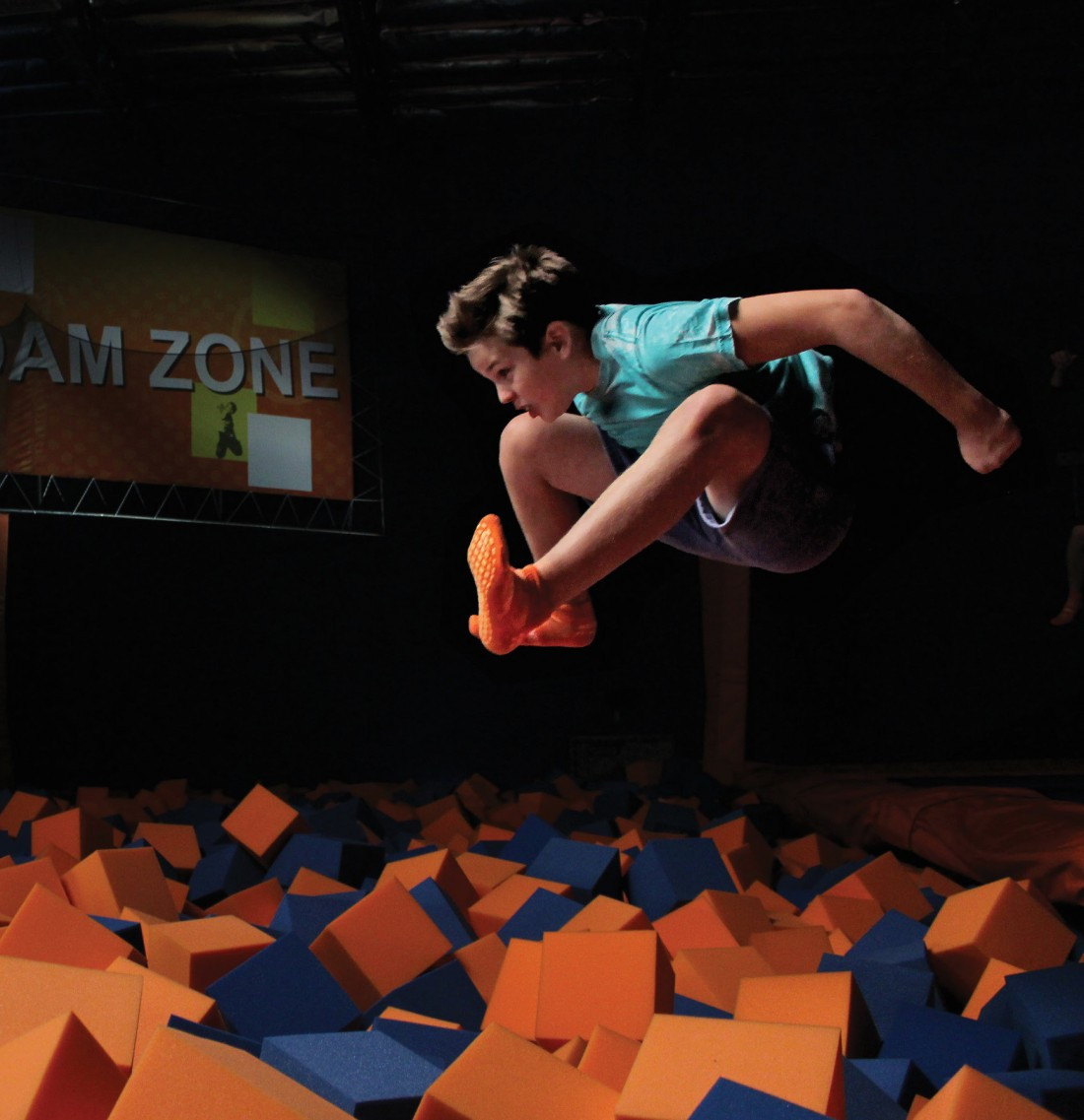In the zone
Trampoline park to have special needs night
Soon, children and adults with sensory sensitivity will have free evenings of flying fun.
Starting in March, Sky Zone Winnipeg will hold a monthly Sensory Night, where participants with autism, ADD/ADHD, and other sensory differences can jump in a comfortable environment.
“We will dim the lights, we will turn the music sort of really, really low, make sure that it’s accommodating to their needs, and then, they can basically come in and jump,” Omeid Deen, operations manager for the facility that boasts six courts of interconnected trampolines, says.
People with sensory sensitivity take in the environment differently than most, leading to feeling over-stimulated or under-stimulated. Certain lights, sounds or textures may be unbearable, for example. Or it may be hard to get enough stimulation, leading to a craving like the need to move or jump.
Sensory Night was an idea that came from Sky Zone corporate headquarters in Los Angeles, in response to research showing that trampoline jumping can be soothing for children with these challenges.
“They are truly showing some amazing numbers for children with any kind of sensory disorder, where they can relax,” Deen says. “It makes their day better, it causes the tension to go away, and it causes their anxiety to slow down.”
“For example, autistic children tend to want to jump, right? When they are getting anxious about something, that’s one of the things that calms them down, so... jumping on a trampoline is a lot safer than... if they’re jumping, say, around tables, and around couches and everything else at home.”
Dr. Sheri-Lynn Skwarchuk, an associate professor and school psychologist who teaches inclusive special education at the University of Winnipeg, sees a place for therapeutic trampolining.
“Some kids are very over-sensitive to touch and feel, and some kids are under-sensitive. And so, one of the therapies that people will have children with sensory issues doing is working with alternative surface feelings, and... so like being on a trampoline where it’s really bouncy could really help some kids who have sensory issues.”
However, Skwarchuk feels that other groups of children could benefit from special nights.
“Children with multiple handicaps, they could benefit from being in Sky Zone. Children with asthma who can’t be outside certain parts of the year because it’s too cold, and the cold affects their breathing, would benefit.”
According to Skwarchuk, many children have issues with anxiety.
“Exercise is one of the suggested strategies to deal with anxiety in the short term. So, activities involving exercise could help children to feel better about themselves and the issues in their lives.”
Skwarchuk cautions that trampoline parks do pose risks of injury, and that adequate supervision and jump safety training are paramount.
As an extra precaution for Sensory Night, Sky Zone will allow caregivers to supervise from the padding around the trampoline squares.
“All the pads are safety standard regulated pads, so they do provide cushioning, and they do provide a level of safety for the jumpers,” Deen says.
Published in Volume 70, Number 21 of The Uniter (February 25, 2016)








